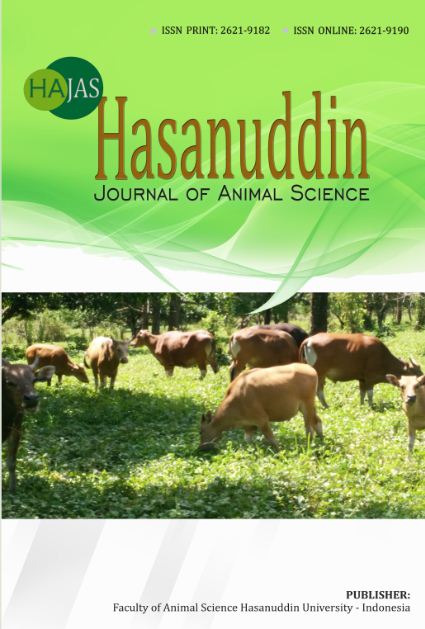The Evaluation of Using Bio Activators Based on Rumen Content of Dry Matter, Organic Matter, and Crude Protein on Oil Palm Fronds as Ruminant Feed
DOI:
https://doi.org/10.20956/hajas.v4i1.18527Abstract
This study aims to examine the effect of using rumen content bioactivators with the addition of different energy sources on nutrient content, fiber fraction content, and energy estimation in palm leaves and midribs that will be used as feed ingredients for ruminants. Factorial completely randomized design 2x4 with 4 replications for each treatment was used in this study. Factor A is the source of the rumen contents, where A1 = Cattle rumen, A2 = Buffalo rumen. Factor B is a microbial energy supply; B1 = Molasses, B2 = Molasses + palm frond extract, B3 = Molasses + palm leaf extract, B4 = Molasses + palm frond and leaf extract. Parameters observed were dry matter content, organic matter, crude protein. The results of the variance analysis showed that there was no interaction (P> 0.05) between the source of rumen content and the type of microbial energy supply. The dry matter content of palm fronds is not affected by the source of the rumen content of cows or buffaloes. The source of the rumen content based on cattle or buffaloes have no effect on the dry matter content of palm fronds.
Keywords: Bioactivator, oil palm frond, ruminant.
Downloads
Published
Issue
Section
License

This work is licensed under a Creative Commons Attribution-NonCommercial 4.0 International License.











